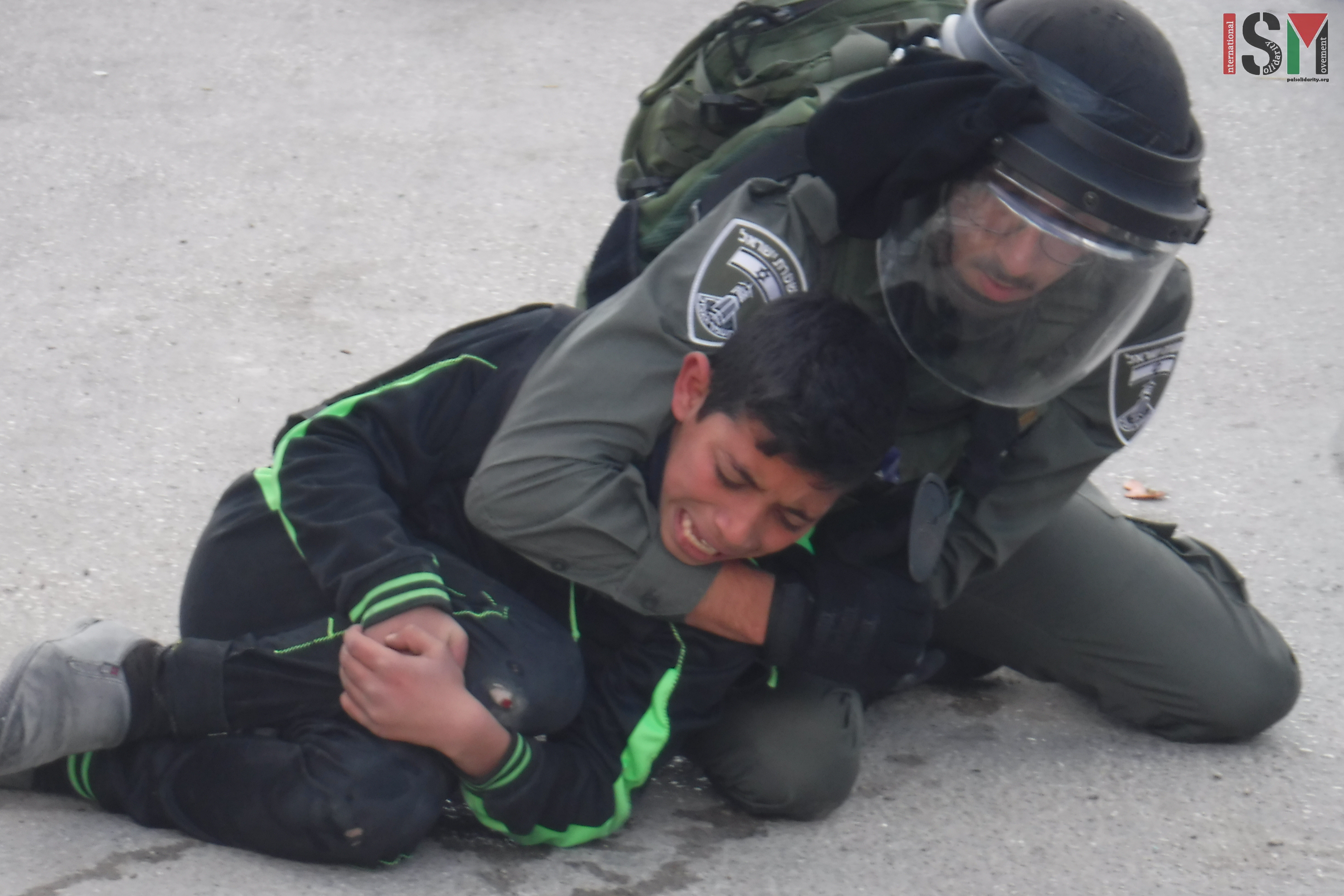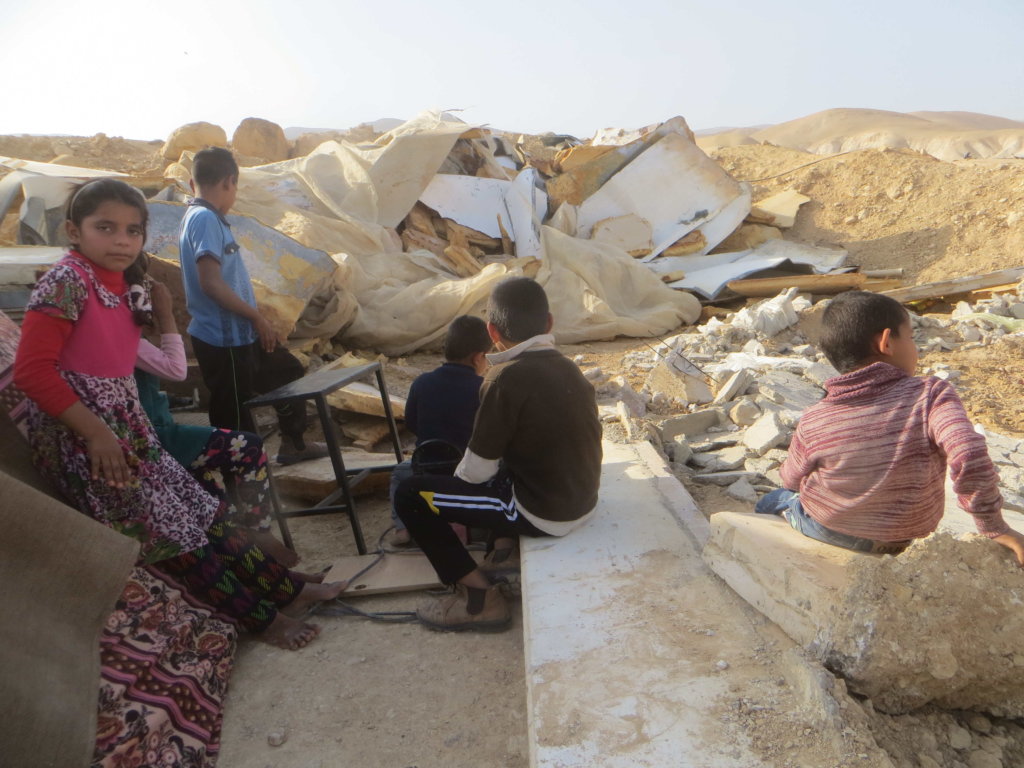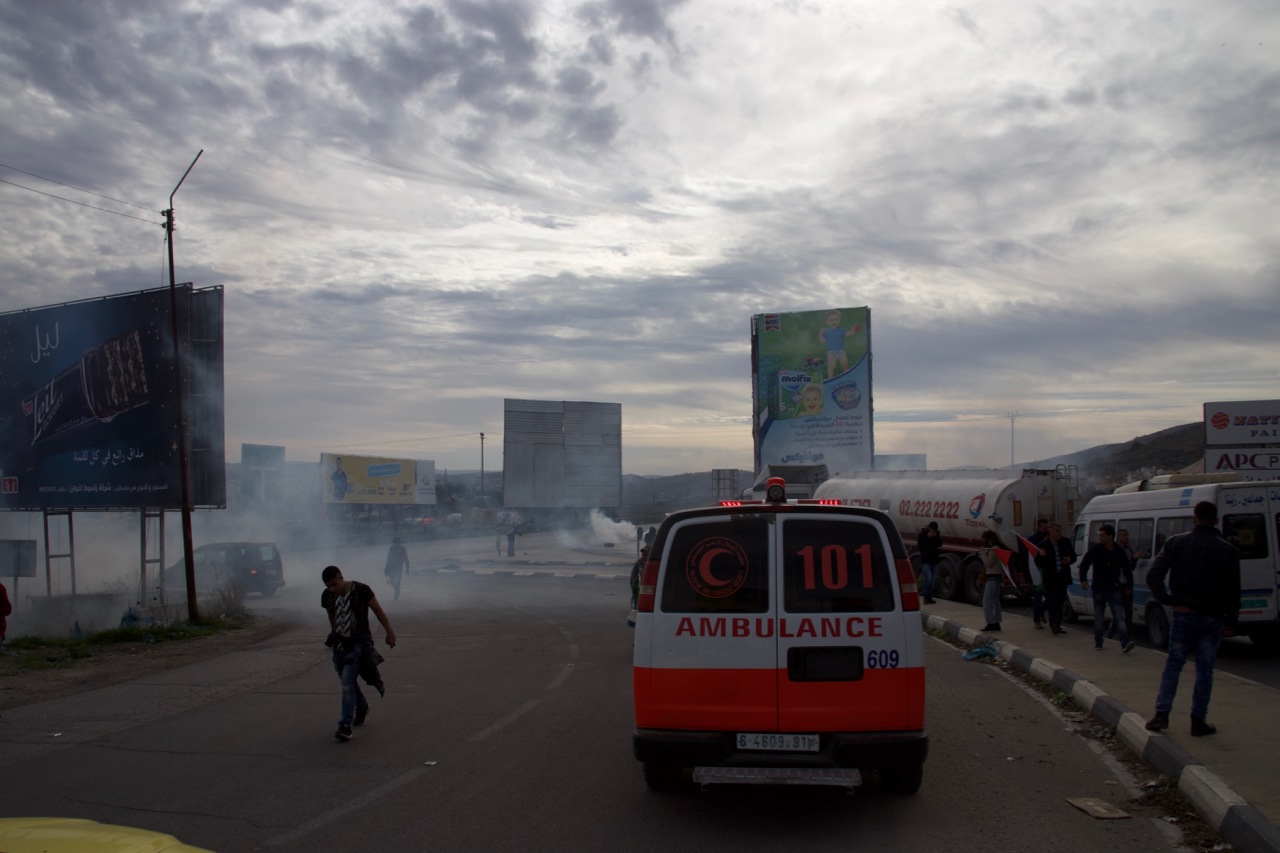-
After School in Hebron, A Journal – 6 boys detained by Israeli forces in 2 Days
5th December 2018 | International Solidarity Movement, Al-Khalil Team | Hebron, occupied Palestine [Updated December 6] For two days running, Israeli occupation soldiers and Border Police ambushed young children aged 10-14 years after school in Hebron. Tuesday, 24thDec. 2 boys were detained at Salaymeh checkpoint after being ambushed by a group of soldiers sneaking around […]
-
The ethnic cleansing of Palestine continues in Fasayil
5th December 2018 | International Solidarity Movement in coordination with Jordan Valley Solidarity, Nablus team | Fasayil al Wusta, Occupied Palestine The ethnic cleansing of Palestine continues. Dunum by dunum, village by village, house by house, the people of Palestine face a slow, systematic genocide in their homeland. Two houses were demolished in the south […]
-
Demonstrators in Nablus met with violence by the Israeli Occupation forces
Protestors marched from the city center of Nablus to the Huwwari Checkpoint only to be met with brute force by the Israeli Occupation Forces.
Action Alert An Nabi Saleh Apartheid Wall Arrests BDS Bethlehem Bil'in Cast Lead Demonstration Denial of Entry Ethnic Cleansing Farmers Gaza Global Actions Hebron House Demolition International law Israeli Army Jerusalem Live Ammunition Nablus Ni'lin Prisoner Ramallah Rubber-coated steel bullets Settlement Settlers Settler violence Tear-Gas Canister Video



